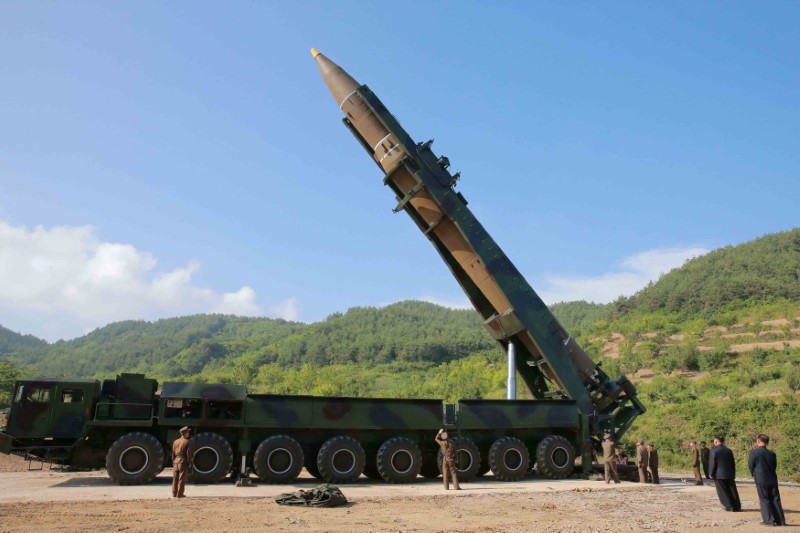WASHINGTON (Reuters) - The U.S. military said it successfully tested a missile defense system to knock down an Intercontinental Ballistic Missile class target on Monday, demonstrating its ability to defend against ICBMs from countries like North Korea.
The U.S. Missile Defense Agency said two ground-based interceptors were used in the test. One destroyed the re-entry vehicle, and the other "looked at the resulting debris and remaining objects, and, not finding any other re-entry vehicles, selected the next 'most lethal object' it could identify, and struck that," it said.
The target was launched from a test site in the Marshall Islands in the Pacific, more than 4,000 miles (6,400 km) from Vandenberg Air Force Base in California, where the interceptors were launched, the agency said.
MDA Director Lieutenant General Sam Greaves called the test a "critical milestone."
"The Ground-based Midcourse Defense system is vitally important to the defense of our homeland, and this test demonstrates that we have a capable, credible deterrent against a very real threat," Greaves said.
North Korea in 2017 test-fired ICBMs designed to reach the U.S. mainland.
In January President Donald Trump unveiled a revamped U.S. missile defense strategy that called North Korea an ongoing and "extraordinary threat," seven months after he declared the threat posed by Pyongyang had been eliminated.
